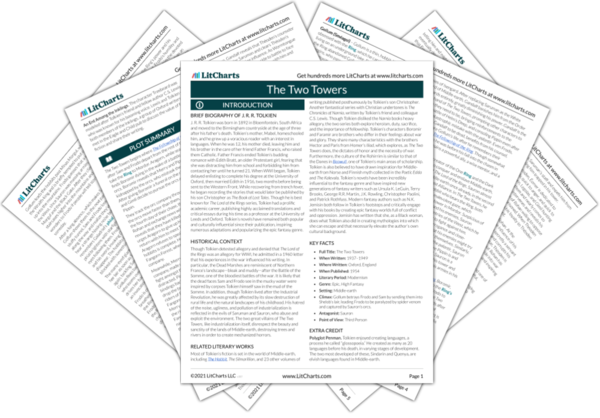AI ToolsNew
Tools to make learning and teaching easier
|
Previous
Book 3, Chapter 1
|
The Two Towers: Book 3, Chapter 2 Summary & Analysis |
Next
Book 3, Chapter 3
|


Upgrade to unlock the analysis and theme tracking for all of The Two TowersThe Two Towers!
Get LitCharts A+